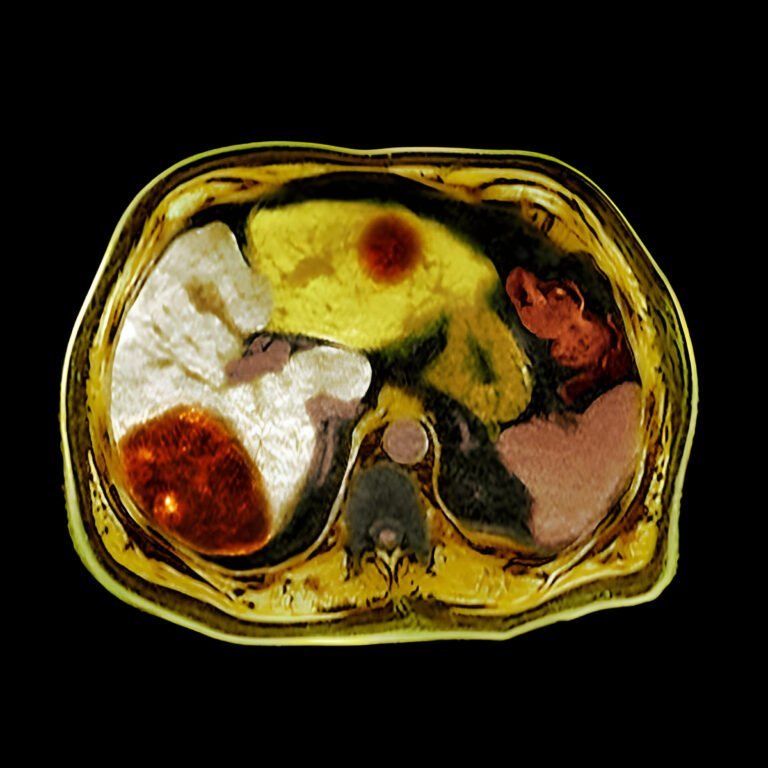Understanding Hepatocellular Carcinoma (HCC)
Hepatocellular Carcinoma, or HCC, is the most common type of primary liver cancer, often arising from chronic liver diseases such as hepatitis B or C infection, cirrhosis, or excessive alcohol consumption. This cancer starts in the hepatocytes, the main type of liver cell, and can have significant impacts on a patient’s life.
Symptoms and Diagnosis
Early stages of HCC may not present noticeable symptoms. As the condition advances, individuals may encounter:
- Abdominal pain: Discomfort or pain in the upper abdomen, often near the liver.
- Jaundice: Yellowing of the skin and eyes due to impaired liver function.
- Unexplained weight loss: Loss of appetite and unintended weight reduction.
- Fatigue: Persistent tiredness and weakness.
- Swelling: refers to the buildup of fluid in the abdomen (ascites) or legs (edema).
Diagnosing HCC usually involves imaging tests like ultrasound, CT scan, or MRI, along with blood tests to measure liver function and levels of tumor markers like alpha-fetoprotein (AFP).
Living with HCC: Challenges and Coping Strategies

Receiving a diagnosis of HCC can be overwhelming for patients and their families. It often brings about a range of emotional responses, including fear, anxiety, and uncertainty about the future. However, many patients find ways to cope with the challenges posed by the disease.
Treatment Options and Decisions
Treatment for HCC depends on the stage of the cancer, overall health, and individual preferences. Options may include:
- Surgery: Removal of the tumor and potentially part of the liver.
- Liver Transplantation: Replacement of the diseased liver with a healthy liver from a donor.
- Ablation Therapy: Destruction of the tumor using techniques like radiofrequency or microwave ablation.
- Chemotherapy and Targeted Therapy: Medications to kill cancer cells or stop their growth.
- Palliative Care: involves addressing symptoms and enhancing the overall quality of life.
Lifestyle Adjustments
Living with HCC often requires significant lifestyle changes. Patients are advised to:
- Follow a Healthy Diet: Eating nutritious foods to support liver function.
- Avoid Alcohol: Alcohol can further damage the liver.
- Manage Medications: Taking prescribed medications as directed.
- Monitor Symptoms: Being aware of any changes and reporting them to healthcare providers promptly.
Emotional Support and Resources
Managing the emotional impact of HCC is crucial. Patients may benefit from:
- Support Groups: Connecting with others who understand their experiences.
- Counseling: Talking to a therapist or counselor to cope with emotions.
- Educational Resources: Learning about the disease and available treatments.
Looking Ahead
Despite the challenges of living with HCC, many patients find reasons for hope and resilience. Advances in medical research and treatment options offer promising prospects for improved outcomes and quality of life for those affected by this disease.
Advocacy and Awareness
Raising awareness about HCC is essential for early detection and better outcomes. Advocacy efforts can help educate the public, reduce stigma, and promote research into new treatments.
Conclusion
Living with Hepatocellular Carcinoma requires courage, resilience, and support. By understanding the symptoms, exploring treatment options, and seeking emotional support, patients can navigate this journey with hope and determination.
Frequently Asked Questions (FAQs) about Living with Hepatocellular Carcinoma
1. What are the early symptoms of Hepatocellular Carcinoma (HCC)?
Early symptoms of HCC may include abdominal pain or discomfort, unexplained weight loss, fatigue, and in some cases, jaundice (yellowing of the skin and eyes). However, symptoms may not manifest until the disease has progressed, underscoring the importance of regular screenings for individuals at risk.
2. How is Hepatocellular Carcinoma diagnosed?
Diagnosis of HCC typically involves imaging tests such as ultrasound, CT scan, or MRI, which help visualize the liver and detect any abnormalities. Blood tests to assess liver function and tumor markers like alpha-fetoprotein (AFP) are also commonly used. A biopsy may be necessary to confirm the diagnosis by examining a tissue sample under a microscope.
3. What are the treatment options for Hepatocellular Carcinoma?
Treatment for HCC depends on factors such as the stage of the cancer, overall health, and individual preferences. Options may include surgery to remove the tumor or part of the liver, liver transplantation for eligible candidates, ablation therapy (using heat or cold to destroy the tumor), chemotherapy, targeted therapy, and palliative care to alleviate symptoms and enhance quality of life.
4. How can I support a loved one with Hepatocellular Carcinoma?
Supporting a loved one with HCC involves offering emotional support, helping them navigate treatment decisions, and encouraging them to adhere to medical recommendations. Practical support such as assisting with household tasks or attending medical appointments together can also be valuable.
5. What lifestyle changes are recommended for individuals living with Hepatocellular Carcinoma?
Patients with HCC are often advised to follow a healthy diet to support liver function, avoid alcohol consumption, manage medications as prescribed, and monitor for any changes in symptoms or side effects. Regular exercise, if approved by healthcare providers, can also contribute to overall well-being.
6. Where can I find additional support and information about Hepatocellular Carcinoma?
Patients and caregivers can find support through organizations dedicated to liver health, cancer support groups, and online resources provided by reputable medical institutions. Healthcare providers can also offer information tailored to individual needs and circumstances.
7. What are the prospects for patients diagnosed with Hepatocellular Carcinoma?
The outlook for patients with HCC varies depending on factors such as the stage of the cancer at diagnosis, response to treatment, and overall health. Advances in medical research and treatment options offer hope for improved outcomes and quality of life, emphasizing the importance of early detection and comprehensive care.
8. How can advocacy and awareness efforts impact Hepatocellular Carcinoma?
Advocacy efforts play a crucial role in raising awareness about HCC, promoting early detection through screenings, and advocating for increased research funding. By reducing stigma and educating the public about risk factors and symptoms, advocacy can help improve outcomes for individuals affected by this challenging disease.
For more updates on Health news, be sure to stay tuned to Red Hat Life.





